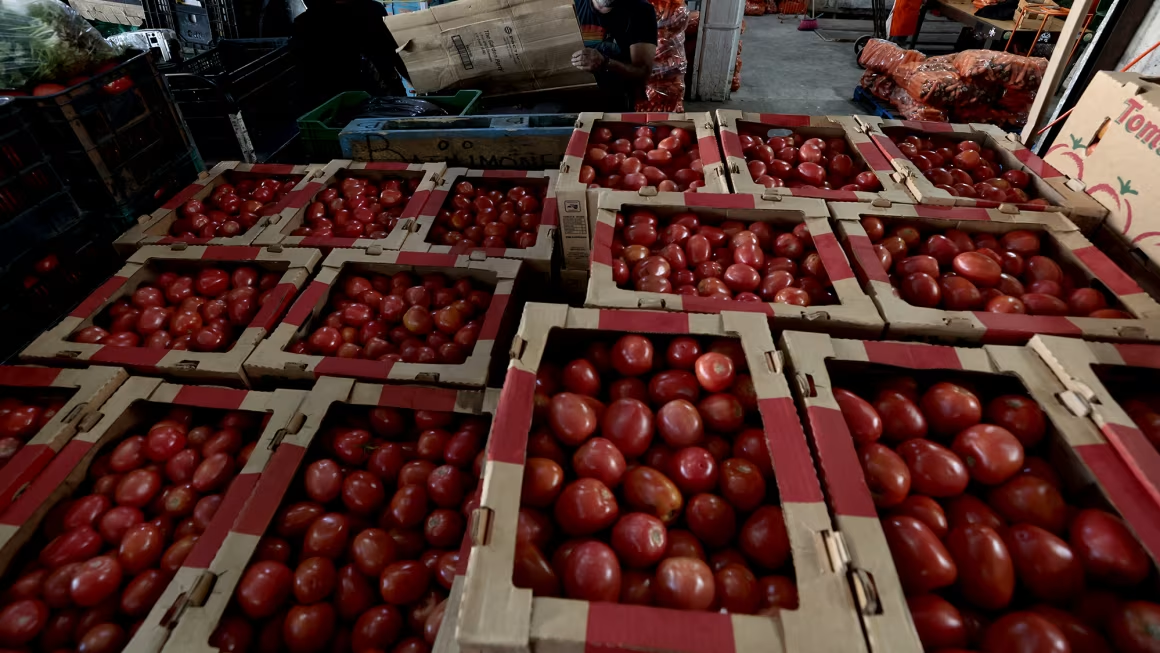Tomato prices across the United States could rise sharply as soon as Monday, with the Biden administration poised to impose 20.9% tariffs on most Mexican tomato imports, ending nearly three decades of relatively stable cross-border trade under the Tomato Suspension Agreement.
The agreement, first established in 1996, aimed to prevent Mexican producers from “dumping” tomatoes — selling them below fair market value to undercut U.S. growers. But in April, the U.S. Commerce Department announced its withdrawal from the deal, citing repeated violations and its failure to protect American farmers.
Now, beginning July 14, tariffs could drive up consumer prices for fresh tomatoes by 10% or more, according to Timothy Richards, a professor of agribusiness at Arizona State University. This would affect everything from pizzas and salads to pasta sauces and tacos across the U.S.
For small restaurant owners like Teresa Razo, who runs two Argentine-Italian eateries in Southern California, the change could be devastating.
“I give it three months, and then we go bankrupt,” Razo said. “We don’t need more instability — we already have enough.”
Razo is not alone in her concern. Mexican imports account for a significant portion of the tomatoes consumed in the U.S., especially in colder months. The U.S. Department of Agriculture recently confirmed that Mexico remains the top supplier of fresh tomatoes to the American market.
While large companies like Heinz and DiGiorno rely on domestically grown tomatoes and may be insulated from the cost hike, many small and mid-sized businesses will have to absorb the price surge or pass it on to customers.
Justin De Leon, owner of Appollonia’s Pizzeria in Los Angeles, says his business uses Mexican tomatoes for fresh toppings and California tomatoes for sauces. While he plans to absorb some of the added cost, he admits,
“It’s just another headache in an already stressful business. I just hope it comes to an end soon.”
The new tariffs come amid broader trade turbulence as the Trump administration intensifies its “America First” economic agenda, pulling away from international trade agreements in favor of aggressive tariff enforcement. Critics, including small business owners and trade experts, argue that the unpredictability is hurting the U.S. economy more than helping it.
Supporters of the new policy, however, say the change is long overdue.
“Five consecutive agreements have failed to stop the illegal dumping of unfairly priced tomatoes,” said Robert Guenther, Executive VP of the Florida Tomato Exchange. “American farmers can meet year-round demand thanks to technological advancements and geographic diversity.”
But Mexican growers argue the tariffs are politically motivated.
“We’ve complied with pricing floors, quarterly audits, and quality inspections,” said Walberto Solorio, president of the Baja California Agricultural Council. “This isn’t about violations — it’s politics.”
Back in California, Razo is trying to find new domestic suppliers to avoid price hikes, but the market is tight, and the timing uncertain.
“I’ve stopped watching the news for my own mental health,” she said. “The fear and instability are overwhelming. We need clarity, not chaos.”
For consumers, a price increase may be felt quickly at restaurants, farmers markets, and grocery stores — a reminder that even the smallest ingredient can have a big economic impact.

